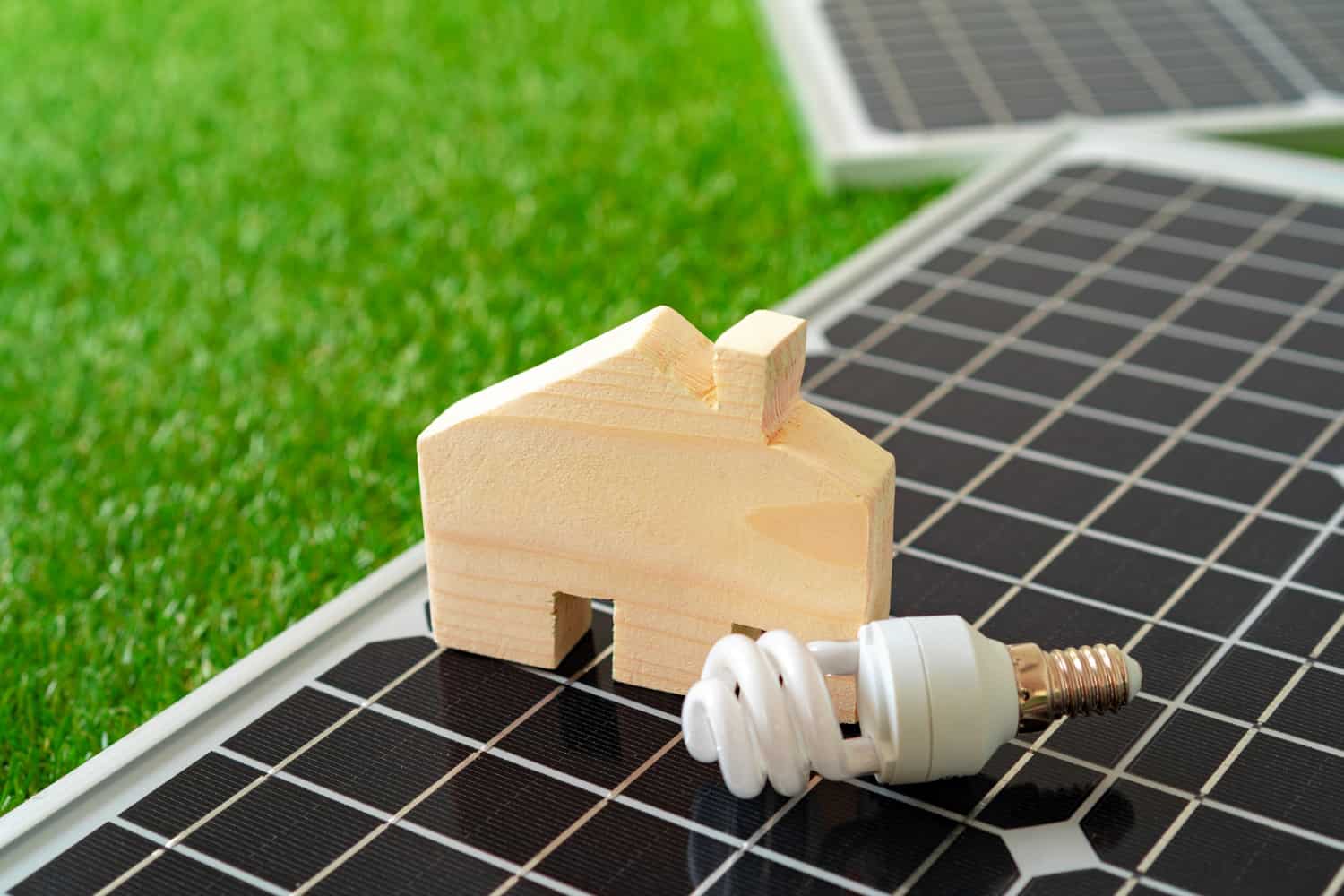Home>Renovation & DIY>Home Renovation Guides>Home Improvements: Why Husband Puts It Off


Home Renovation Guides
Home Improvements: Why Husband Puts It Off
Modified: January 9, 2024
Discover why many husbands procrastinate home improvements and get expert guides for successful home renovations. Explore tips and tricks for a stress-free home renovation project.
(Many of the links in this article redirect to a specific reviewed product. Your purchase of these products through affiliate links helps to generate commission for Storables.com, at no extra cost. Learn more)
Introduction
Read more: Why Do Home Improvements?
Why Do Some Husbands Put Off Home Improvements?
Home improvement projects are often viewed as a labor of love, a way to enhance the living space, and increase the value of a property. However, it’s not uncommon for husbands to procrastinate or avoid these projects altogether. This phenomenon can be attributed to various factors, including lack of time, interest, skills, financial constraints, and procrastination tendencies. Understanding these reasons can shed light on the underlying issues and help address them effectively.
Key Takeaways:
- Overcoming the barriers to home improvement involves time management, skill development, and financial planning. Collaboration and proactive mindset can transform daunting tasks into fulfilling endeavors.
- Husbands can reignite interest in home improvement by exploring innovative approaches, fostering a supportive environment, and embracing a proactive mindset. Overcoming procrastination and lack of skills empowers meaningful renovation journeys.
Lack of Time
One of the most common reasons why husbands put off home improvement projects is the lack of time. Many individuals lead busy lives, juggling work responsibilities, family commitments, and personal pursuits. As a result, finding the time to dedicate to extensive renovations or even minor repairs can be a challenge. The demands of a full-time job, combined with household chores and social engagements, often leave little room for tackling home improvement tasks.
Moreover, the perception of time as a finite resource can lead to prioritizing immediate needs over long-term projects. When faced with the choice between addressing an urgent work deadline or fixing a leaky faucet, the former may take precedence. This prioritization is not necessarily a reflection of disinterest in home improvement but rather a consequence of time constraints.
Additionally, the mental burden of managing multiple responsibilities can contribute to decision fatigue, making it difficult to muster the motivation and energy required for home renovation projects. The lack of uninterrupted time to focus on such endeavors can further deter individuals from initiating or completing home improvement tasks.
Addressing the issue of time constraints involves a reassessment of priorities and effective time management. Setting aside dedicated time slots for home improvement projects, delegating tasks, or seeking professional assistance can alleviate the pressure associated with time limitations. By recognizing the value of investing time in enhancing the home environment, husbands can gradually overcome the barrier of time constraints and embark on fulfilling renovation endeavors.
Lack of Interest
Another factor that may contribute to husbands putting off home improvement projects is the lack of interest in renovation and maintenance tasks. While some individuals possess a natural inclination towards DIY projects and home enhancements, others may find such activities unappealing or tedious. The absence of enthusiasm for home improvement can stem from various sources, including a preference for other hobbies, a lack of appreciation for the impact of renovations, or a perception of these tasks as burdensome obligations.
Furthermore, differing priorities and perspectives within a household can influence an individual’s level of interest in home improvement. If a husband perceives these projects as primarily beneficial to their spouse or other family members, rather than personally fulfilling, they may be less inclined to proactively engage in such endeavors.
Addressing the lack of interest in home improvement involves fostering a sense of purpose and enjoyment in these activities. This can be achieved through education about the benefits of a well-maintained and aesthetically pleasing home environment, as well as the potential for personal satisfaction derived from successful renovation projects. Encouraging spouses to participate in collaborative decision-making and emphasizing the positive impact of home improvements on the entire family can also reignite interest and motivation.
Moreover, exploring innovative and creative approaches to home renovation, such as incorporating modern design trends or sustainable practices, can infuse a sense of novelty and excitement into these projects. By redefining the narrative around home improvement and highlighting its potential for personal fulfillment and creative expression, husbands can overcome the lack of interest and approach renovation tasks with renewed enthusiasm.
Lack of Skills
For many husbands, the lack of necessary skills and expertise in home improvement techniques can serve as a significant deterrent. Renovation and maintenance tasks often require a diverse set of abilities, ranging from carpentry and plumbing to electrical work and interior design. Without adequate knowledge and experience in these areas, individuals may feel ill-equipped to undertake home improvement projects, leading to a sense of apprehension and avoidance.
Moreover, the fear of making mistakes or causing damage during the renovation process can further amplify the reluctance to engage in such tasks. This apprehension is rooted in the desire to maintain the integrity and safety of the home, as well as the potential financial repercussions of errors in DIY endeavors.
To address the lack of skills, husbands can explore opportunities for learning and skill development in the realm of home improvement. This can involve enrolling in local workshops, online courses, or community college classes focused on relevant trades and techniques. Additionally, seeking guidance from experienced professionals or knowledgeable acquaintances can provide valuable insights and mentorship, empowering individuals to expand their skill set and confidence in tackling home renovation projects.
Furthermore, leveraging the abundance of instructional resources available, such as tutorial videos, comprehensive guides, and informative literature, can serve as a valuable educational tool for honing practical skills. By embracing a proactive approach to skill acquisition and gradually building proficiency in various aspects of home improvement, husbands can overcome the barrier of lacking expertise and embark on transformative renovation endeavors with greater confidence.
Set a specific deadline for each home improvement project and create a schedule to tackle them one at a time. Breaking it down into smaller tasks can make it feel more manageable and less overwhelming.
Financial Constraints
Financial considerations play a pivotal role in determining the feasibility and timing of home improvement projects. Husbands may often put off such endeavors due to concerns about the associated costs and budgetary constraints. Renovations, repairs, and upgrades can entail significant expenses, encompassing materials, labor, and unforeseen contingencies, thereby necessitating careful financial planning and allocation of resources.
Moreover, the prioritization of essential household expenses, such as mortgage payments, utility bills, and healthcare costs, can overshadow the allocation of funds for discretionary home improvement projects. The need to maintain a stable and sustainable financial foundation for the family can lead to postponing non-essential renovations, particularly in the face of economic uncertainty or unexpected financial burdens.
To address financial constraints, husbands can adopt a strategic and pragmatic approach to budgeting for home improvement projects. This involves conducting thorough research to obtain accurate cost estimates, identifying cost-effective alternatives for materials and labor, and establishing a realistic renovation timeline that aligns with financial capabilities.
Furthermore, exploring financing options, such as home improvement loans, lines of credit, or government assistance programs, can provide avenues for managing the costs of renovations while minimizing the impact on existing finances. Seeking multiple quotations from contractors and suppliers, as well as actively comparing prices and negotiating favorable terms, can contribute to cost savings and prudent financial management.
Embracing a phased approach to renovations, prioritizing essential repairs and incremental enhancements based on available resources, can facilitate the gradual realization of long-term home improvement goals without imposing undue financial strain. By cultivating a mindset of financial prudence and resourcefulness, husbands can navigate the challenges posed by financial constraints and embark on transformative home improvement projects within their means.
Procrastination
Procrastination, characterized by the postponement of tasks and decision-making, can significantly impede progress on home improvement projects for many husbands. This behavioral pattern often stems from a combination of psychological factors, including perfectionism, fear of failure, and the allure of immediate gratification over long-term rewards.
Moreover, the sheer magnitude of home improvement endeavors, coupled with the potential disruptions to daily routines and living spaces, can evoke feelings of overwhelm and reluctance to initiate the process. The prospect of investing substantial time and effort into renovations without immediate tangible results can further exacerbate procrastination tendencies.
To address procrastination, husbands can benefit from implementing strategies to enhance motivation, minimize distractions, and break down complex projects into manageable tasks. Setting clear and achievable goals, accompanied by structured timelines and progress milestones, can instill a sense of purpose and momentum in tackling home improvement endeavors.
Additionally, leveraging accountability mechanisms, such as involving family members or enlisting the support of friends, can provide encouragement and reinforcement in overcoming procrastination. Establishing a supportive and collaborative environment for home improvement efforts can mitigate the sense of isolation and inertia often associated with procrastination.
Fostering a positive and optimistic mindset, reframing challenges as opportunities for growth and transformation, can also counteract the negative impact of procrastination. Embracing a proactive and solution-oriented approach to addressing home improvement tasks, rather than succumbing to inertia and indecision, can pave the way for meaningful progress and accomplishment.
By recognizing the underlying psychological barriers contributing to procrastination and implementing targeted strategies to overcome them, husbands can cultivate a proactive and resilient mindset that empowers them to embrace home improvement projects with enthusiasm and determination.
Conclusion
Understanding the factors that contribute to husbands putting off home improvement projects is essential in addressing these challenges effectively. The interplay of time constraints, lack of interest, skills, financial considerations, and procrastination underscores the multifaceted nature of the barriers that hinder proactive engagement in home renovation and maintenance.
By acknowledging the impact of these factors and adopting targeted strategies to overcome them, husbands can cultivate a renewed sense of purpose and enthusiasm for home improvement. This may involve reevaluating priorities, fostering a deeper appreciation for the value of a well-maintained home environment, and actively seeking opportunities for skill development and financial planning.
Furthermore, the collaborative involvement of family members and the cultivation of a supportive and empowering environment can serve as catalysts for overcoming inertia and procrastination. By embracing a proactive and solution-oriented mindset, husbands can transform the narrative around home improvement from a daunting obligation into a fulfilling and rewarding endeavor.
Ultimately, the journey towards overcoming the barriers to home improvement is a testament to the transformative power of perseverance, creativity, and resilience. By harnessing these qualities, husbands can embark on a path of meaningful renovation and maintenance, enriching their living spaces and nurturing a sense of pride and accomplishment in the process.
As the barriers to home improvement are gradually dismantled, the home evolves into a reflection of dedication, creativity, and care, embodying the enduring spirit of transformation and possibility.
Frequently Asked Questions about Home Improvements: Why Husband Puts It Off
Was this page helpful?
At Storables.com, we guarantee accurate and reliable information. Our content, validated by Expert Board Contributors, is crafted following stringent Editorial Policies. We're committed to providing you with well-researched, expert-backed insights for all your informational needs.















0 thoughts on “Home Improvements: Why Husband Puts It Off”